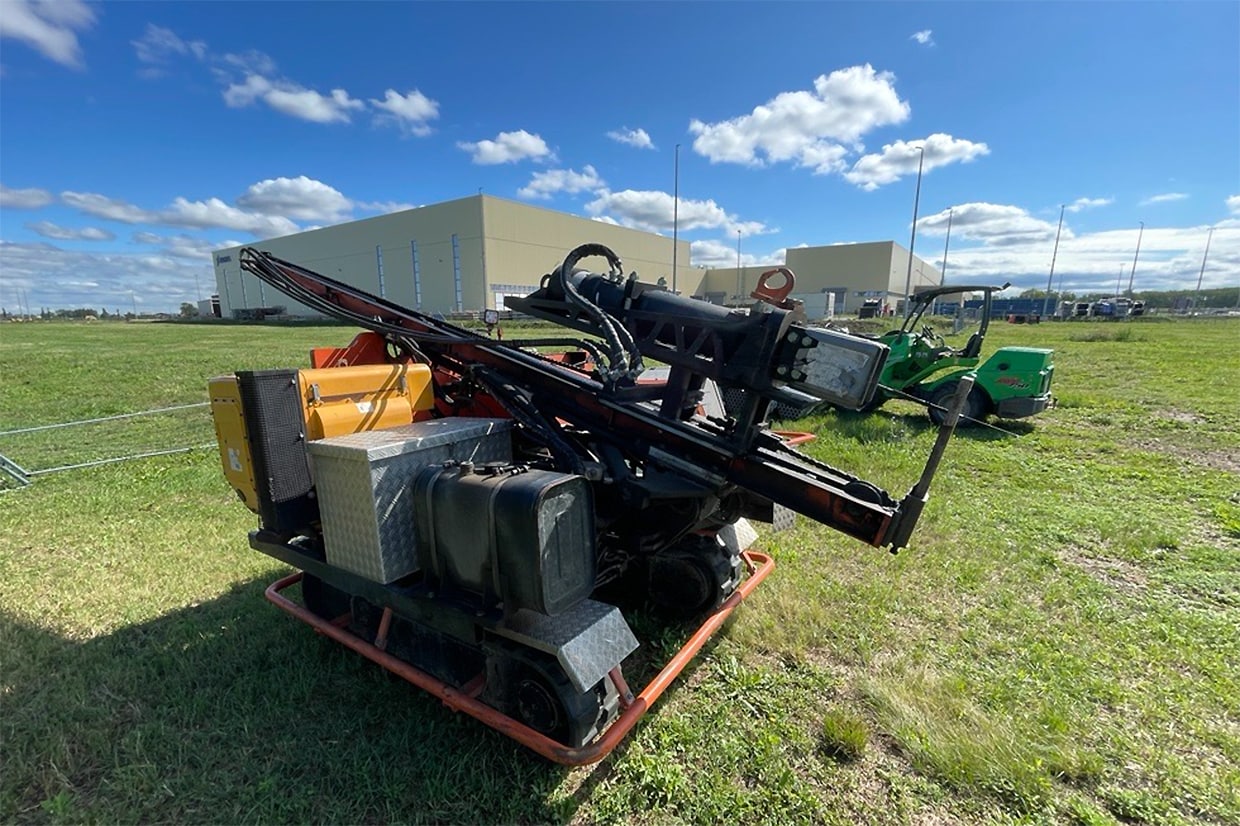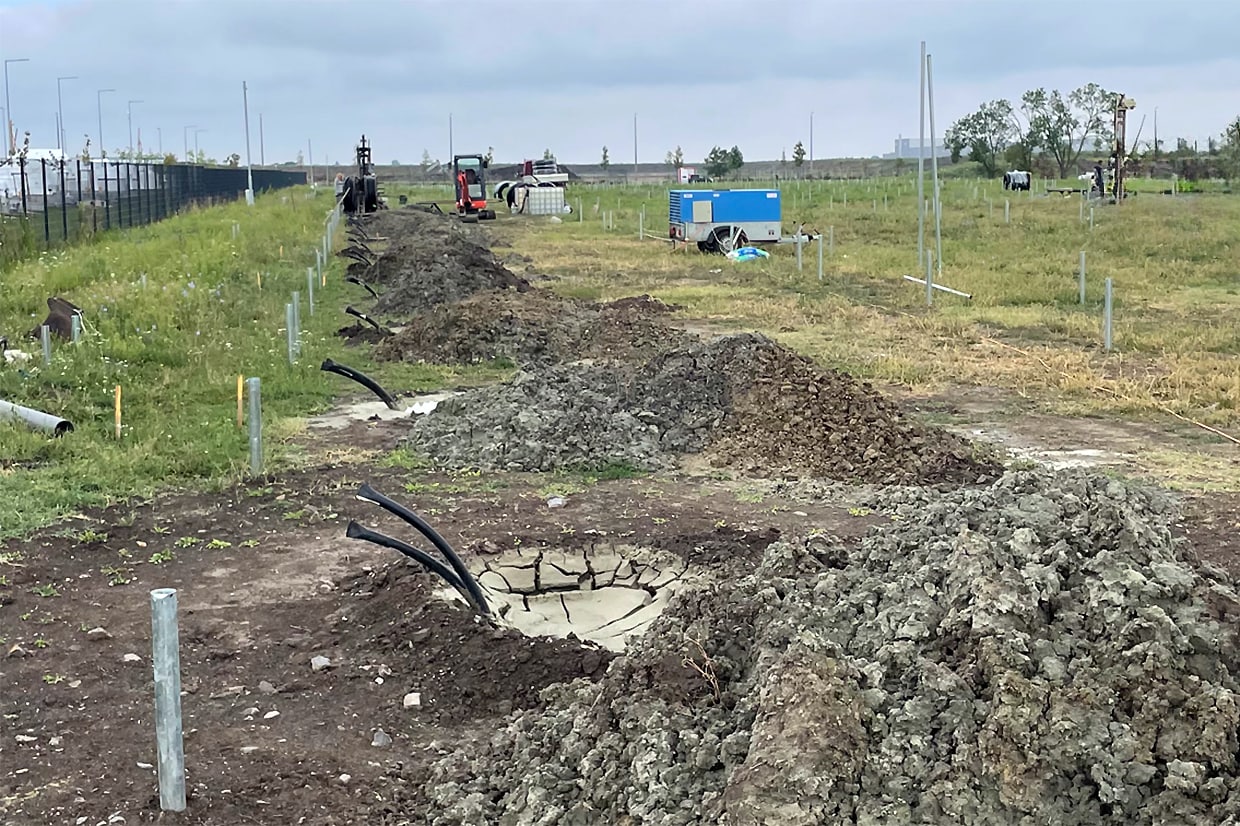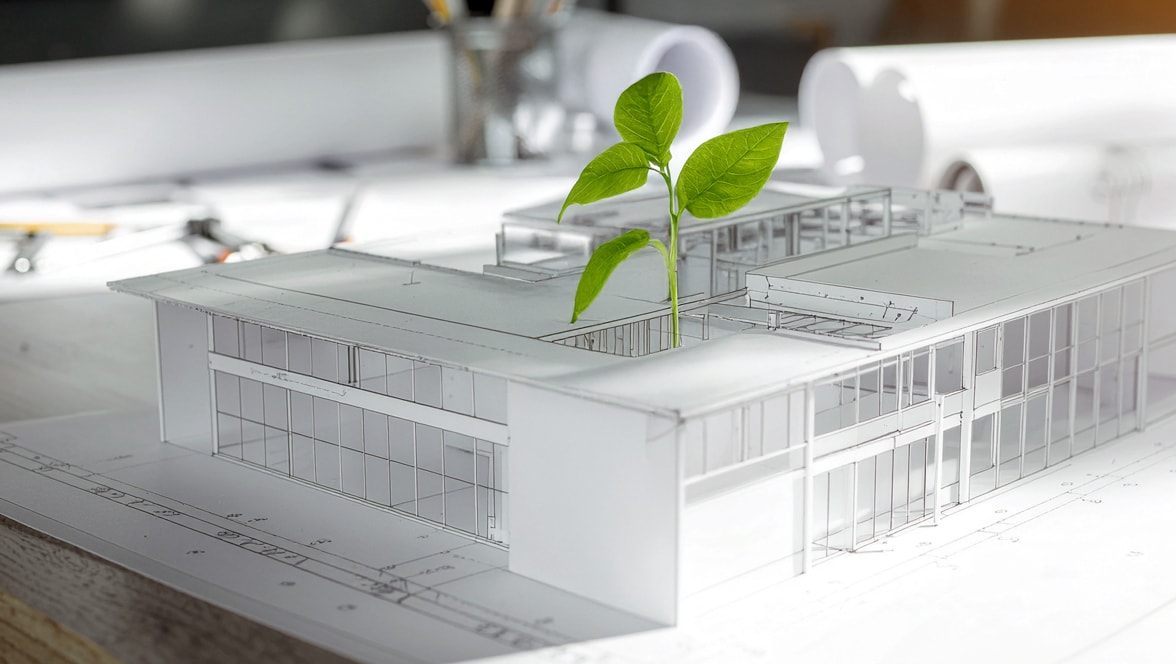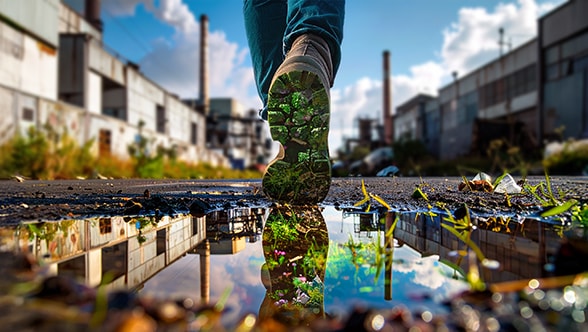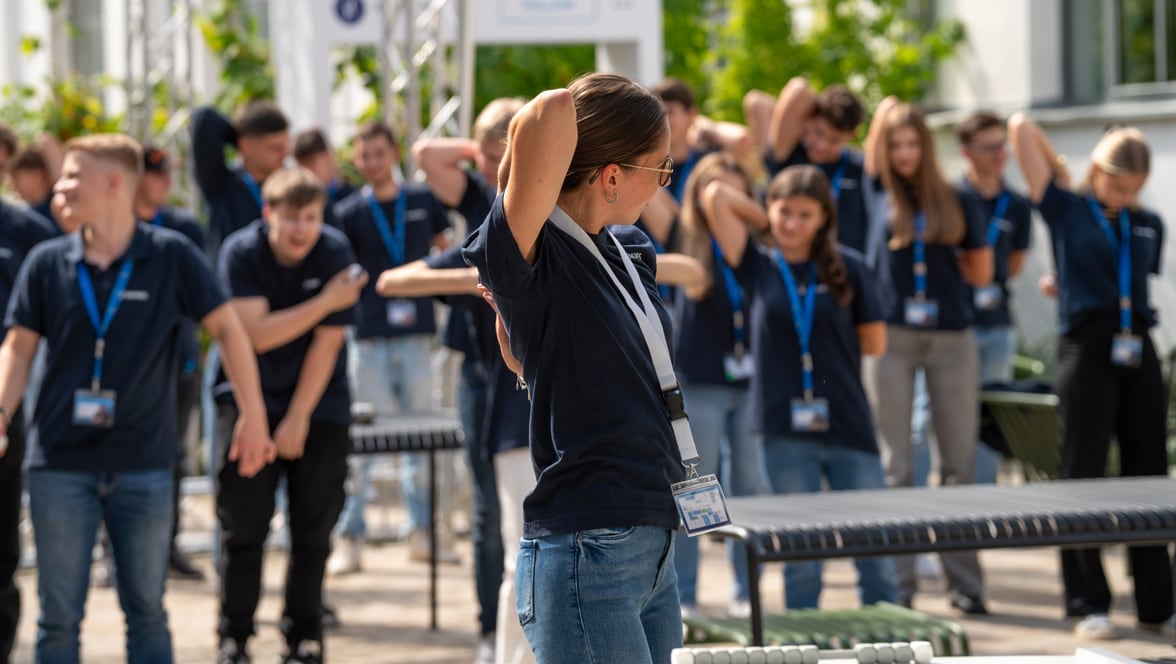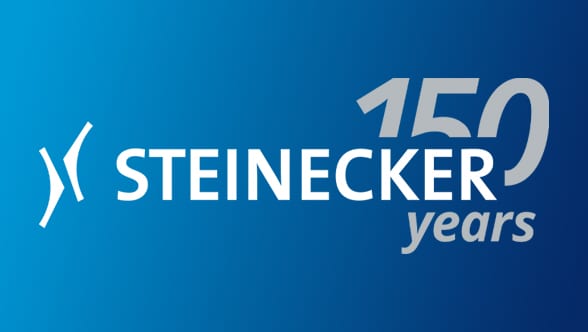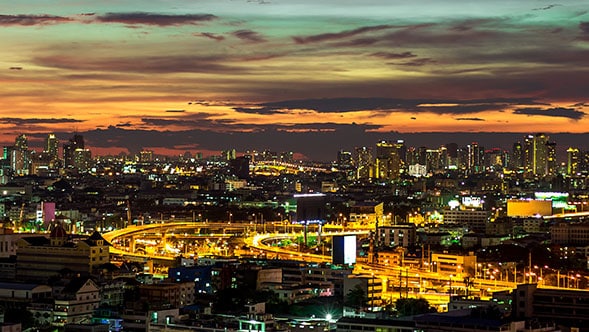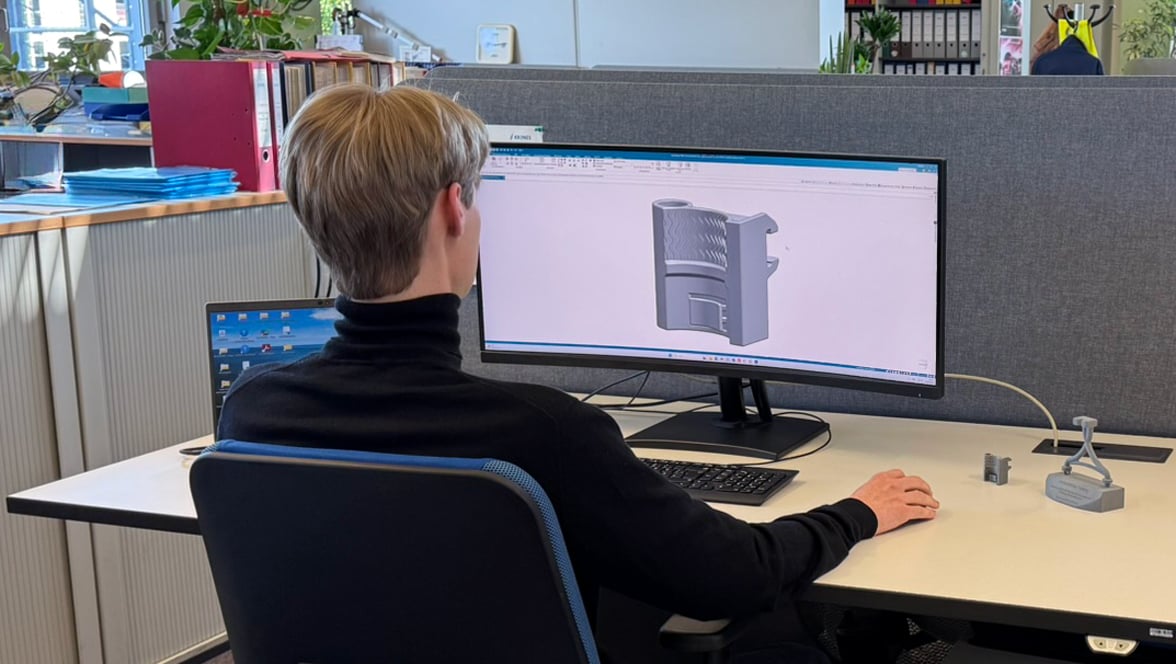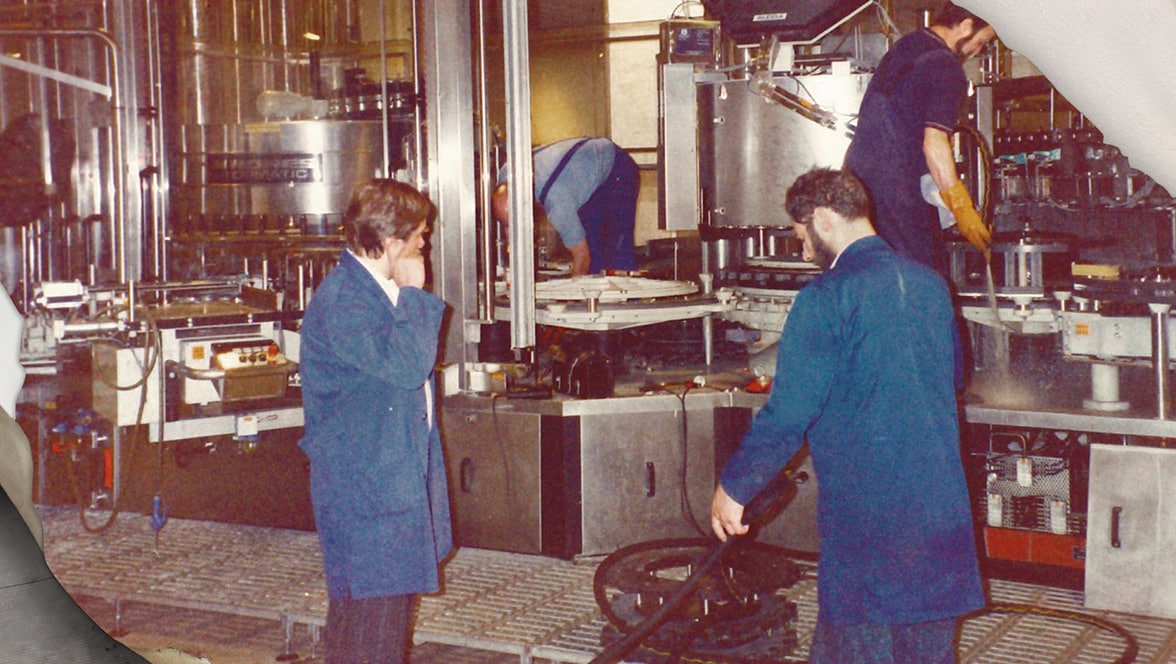According to current planning, the Krones plant in Hungary could have reduced its CO2 emissions in scope 1 and 2 (emissions at a company's own sites) to net zero even before the originally targeted year of 2030. Apart from the fact that green electricity will be generated and sustainably used in the future with the help of an in-house photovoltaic system, this progress is also primarily due to geothermal energy generation, which Hungary has at its disposal thanks to its particularly favourable natural conditions. However, the recovery of the previously unused and considerable waste heat from the compressors used to generate compressed air also significantly increases overall energy efficiency.
Groundbreaking at last!
The plant in Debrecen currently operates two gas tanks, each with a capacity of one megawatt, which supply the heating systems of the entire production site. For continued covering of the heating and cooling requirements, a geothermal energy sensor system will be installed. Three heat pumps in which a special fluid mixture circulates serve as energy sources. The heat pump operation results in an increased demand for electricity, which is already covered by 100 percent green electricity. So, because the entire site can be supplied with renewable energy in the future, the gas boilers will become dispensable.

